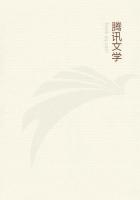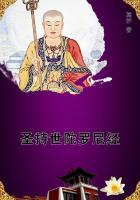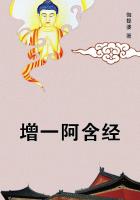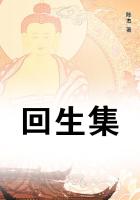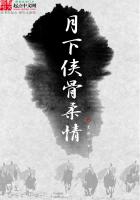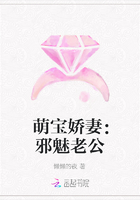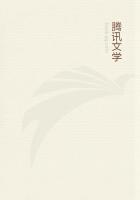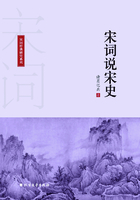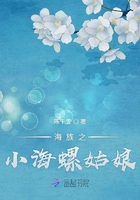Such happy strokes of high success have always been possible, and will remain possible, perhaps, for all time to come. Even whole races, tribes and nations may occasionally represent such lucky accidents. 5. We should not deck out and embellish Christianity: it has waged a war to the death against this higher type of man, it has put all the deepest instincts of this type under its ban, it has developed its concept of evil, of the Evil One himself, out of these instincts--the strong man as the typical reprobate, the "outcast among men." Christianity has taken the part of all the weak, the low, the botched; it has made an ideal out of antagonism to all the self-preservative instincts of sound life;it has corrupted even the faculties of those natures that are intellectually most vigorous, by representing the highest intellectual values as sinful, as misleading, as full of temptation. The most lamentable example: the corruption of Pascal, who believed that his intellect had been destroyed by original sin, whereas it was actually destroyed by Christianity!-- 6. It is a painful and tragic spectacle that rises before me: I have drawn back the curtain from the rottenness of man. This word, in my mouth, is at least free from one suspicion: that it involves a moral accusation against humanity. It is used--and I wish to emphasize the fact again--without any moral significance: and this is so far true that the rottenness I speak of is most apparent to me precisely in those quarters where there has been most aspiration, hitherto, toward "virtue" and "godliness." As you probably surmise, I understand rottenness in the sense of decadence: my argument is that all the values on which mankind now fixes its highest aspirations are decadence -values.
I call an animal, a species, an individual corrupt, when it loses its instincts, when it chooses, when it prefers, what is injurious to it. A history of the "higher feelings," the "ideals of humanity"--and it is possible that I'll have to write it--would almost explain why man is so degenerate. Life itself appears to me as an instinct for growth, for survival, for the accumulation of forces, for power: whenever the will to power fails there is disaster. My contention is that all the highest values of humanity have been emptied of this will--that the values of decadence, of nihilism, now prevail under the holiest names. 7. Christianity is called the religion of pity .-- Pity stands in opposition to all the tonic passions that augment the energy of the feeling of aliveness: it is a depressant. A man loses power when he pities. Through pity that drain upon strength which suffering works is multiplied a thousandfold.
Suffering is made contagious by pity; under certain circumstances it may lead to a total sacrifice of life and living energy--a loss out of all proportion to the magnitude of the cause (--the case of the death of the Nazarene). This is the first view of it; there is, however, a still more important one. If one measures the effects of pity by the gravity of the reactions it sets up, its character as a menace to life appears in a much clearer light. Pity thwarts the whole law of evolution, which is the law of natural selection. It preserves whatever is ripe for destruction; it fights on the side of those disinherited and condemned by life; by maintaining life in so many of the botched of all kinds, it gives life itself a gloomy and dubious aspect. Mankind has ventured to call pity a virtue (--in every superior moral system it appears as a weakness--); going still further, it has been called the virtue, the source and foundation of all other virtues--but let us always bear in mind that this was from the standpoint of a philosophy that was nihilistic, and upon whose shield the denial of life was inscribed. Schopenhauer was right in this: that by means of pity life is denied, and made worthy of denial--pity is the technic of nihilism. Let me repeat: this depressing and contagious instinct stands against all those instincts which work for the preservation and enhancement of life: in the role of protector of the miserable, it is a prime agent in the promotion of decadence--pity persuades to extinction....Of course, one doesn't say "extinction": one says "the other world," or "God,"or "the true life," or Nirvana, salvation, blessedness.... This innocent rhetoric, from the realm of religious-ethical balderdash, appears a good deal less innocent when one reflects upon the tendency that it conceals beneath sublime words: the tendency to destroy life. Schopenhauer was hostile to life: that is why pity appeared to him as a virtue. . .
. Aristotle, as every one knows, saw in pity a sickly and dangerous state of mind, the remedy for which was an occasional purgative: he regarded tragedy as that purgative. The instinct of life should prompt us to seek some means of puncturing any such pathological and dangerous accumulation of pity as that appearing in Schopenhauer's case (and also, alack, in that of our whole literary decadence, from St. Petersburg to Paris, from Tolstoi to Wagner), that it may burst and be discharged. . . Nothing is more unhealthy, amid all our unhealthy modernism, than Christian pity.
To be the doctors here, to be unmerciful here, to wield the knife here--all this is our business, all this is our sort of humanity, by this sign we are philosophers, we Hyperboreans !-- 8. It is necessary to say just whom we regard as our antagonists:
theologians and all who have any theological blood in their veins--this is our whole philosophy. . . . One must have faced that menace at close hand, better still, one must have had experience of it directly and almost succumbed to it, to realize that it is not to be taken lightly (--the alleged free-thinking of our naturalists and physiologists seems to me to be a joke--they have no passion about such things; they have not suffered--).

